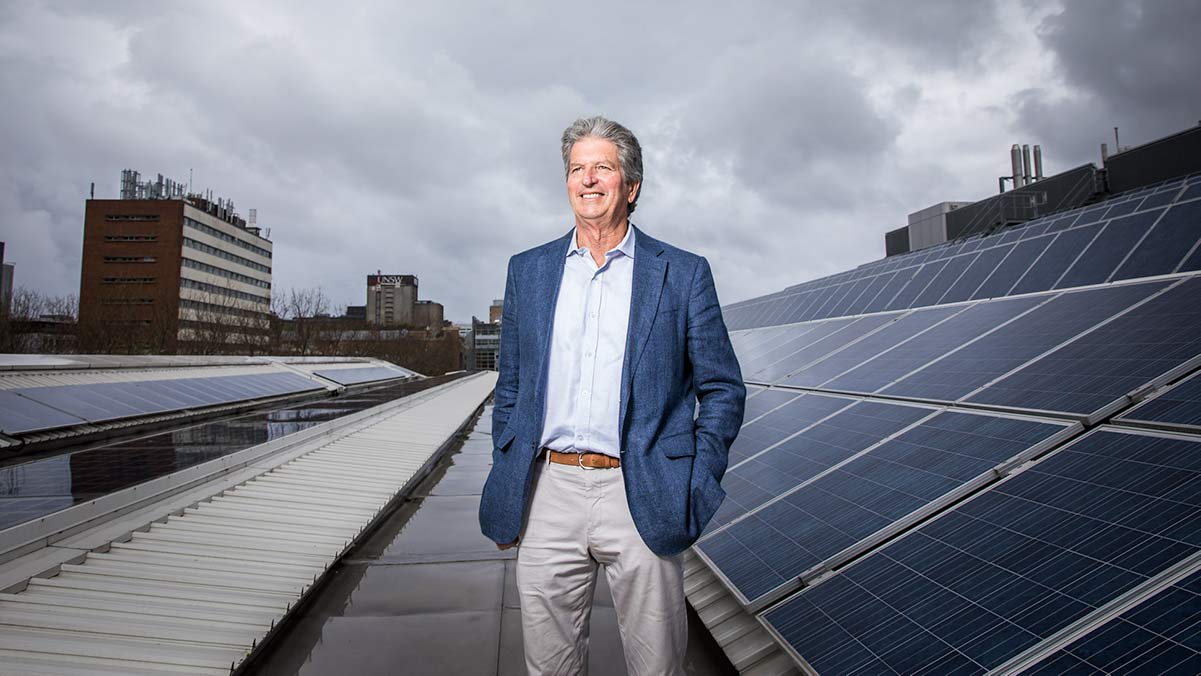The University of New South Wales’ professor Martin Green has been awarded the prestigious Japan Prize for his work leading pioneering research into solar PV technologies.
Professor Green was awarded the 2021 Japan Prize in the category of “Resources, Energy, the Environment, and Social Infrastructure”, in recognition the more than four decades of research undertaken at UNSW, that developed technologies now ubiquitous in most commercially available solar panels.
“It’s a privilege to receive this award, which serves as a reminder that the quest for inexpensive, renewable energy is a global quest seeking to sustain the trajectory of human civilisation on our shared planet,” professor Green said in a statement.
“I’d like to pay tribute to the thousands of solar researchers who have worked in the field for many years, including those at UNSW and elsewhere who have helped not just make PERC [solar cells] a reality but solar now the cheapest source of bulk electricity supply.”
Green oversaw the creation of a dedicated solar research group at the University of New South Wales in the 1970s.
The research team, which featured members who would also establish themselves as some of Australia’s leading solar researchers, successfully held the world record for conventional silicon solar cell efficiency for several decades, outperforming much larger international research organisations.
Green’s research group produced the first solar cells with an efficiency above 20 per cent in 1989, and the research team held world silicon solar efficiency record for 30 of the last 38 years.
The research led to dramatic improvements in solar cell designs and has underpinned the progress that has seen solar power rank amongst the cheapest sources of electricity generation in history.
The work has led Green to be dubbed “the father of modern photovoltaics”, with Green beating the likes of Tesla CEO Elon Musk to be awarded another leading technology prize, the Global Energy Prize, in 2018.
Martin is credited with the invention of the ‘Passivated Emitter and Rear Contact’ solar cell design, also known as the PERC cell, which is quickly becoming a de facto industry standard within the solar industry for solar cell design, due to its ability to achieve high conversion efficiencies at low cost.
“Early in my career, solar was interesting but terribly expensive,” Green added. “Now it embodies the long-standing hope of an abundant, inexpensive renewable resource, providing an answer to our planet’s critical environmental challenges.”
The PERC cell design now features in as much as 85 per cent of solar cell production and currently represents more than US$100 billion in sales. Sales of PERC solar cells are expected to grow to more than US$3 trillion cumulatively by 2040.
The award was welcomed by UNSW vice-chancellor Ian Jacobs, who said the prize was a recognition of Green’s substantial contribution to engineering and solar energy.
“Martin has made a seminal contribution to the development of renewable energy which produces major economic and social benefits globally. The legacy of his work will have a positive impact for many decades to come,” Jacobs said.
“This award cements his place as one of the most influential minds in engineering globally. UNSW is proud of his stellar achievements and we warmly congratulate Martin on this richly deserved accolade.”
The Japan Prize awards 50 million Japanese Yen (A$ 620,000), along with a certificate and a prize medal. It is considered amongst the top 30 major academic awards.
Green’s award is the third time an Australian scientist has been awarded the Japan Prize, following Jacques Miller who was recognised for his work building greater understanding of the immune system, and Frank Fenner for his work on the eradication of smallpox.










